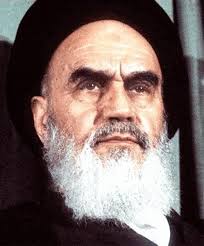A new poll has shown that the American public, by a decisive margin of 2 to 1, opposes President Barack Obama’s nuclear agreement with extremist Shia Islamic Republic of Iran signed in Vienna last month. The national poll, conducted by Quinnipiac University during July 23-28, found that 57% American voters oppose the nuclear deal, as compared to a mere 28% who support it. Additionally, by a similar 2 to 1 margin, 58% of Americans believe that President Obama’s nuclear agreement with Iran will not make the world a safer place, as opposed to a mere 30% who believe that it will.
The Quinnipiac poll also found that:
Americans disapprove of President Obama’s handling of the situation with Iran by 56% to 35%.
Americans disapprove of the way President Obama is handling the nation’s foreign policy by 55% to 39%.
Americans disapprove of President Obama’s handling of the presidency by 52% to 43%(Quinnipiac University National Poll, ‘August 3, 2015 – American Voters Oppose Iran Deal 2-1, Quinnipiac University National Poll Finds; Pope’s Climate Change Message Gets Huge Support’).
ZOA National President Morton A. Klein said, “This poll finding shows that, by a decisive 2 to 1 margin, Americans oppose the disastrous nuclear deal signed by the Obama Administration with Iran.
“These findings, moreover, are consistent with several earlier ones that preceded the deal –– for example a March 2015 Rasmussen poll which found that 60% of Americans did not believe that the deal then being negotiated with Iran would stop Iran’s nuclear weapons program, as opposed to a mere 33% who said that it would.
“Another Rasmussen poll in March 2015 also found that 60% of the American public wanted the Congress to approve or disapprove the eventual deal negotiated with Iran –– something which of course has been circumvented by President Obama, who went straight to the UN to bind the U.S. internationally before Congressional review could be undertaken.
“The associated findings show an American public that lacks confidence in President Obama’s handling of Iran, the country’s foreign policy more generally and the presidency itself.”
